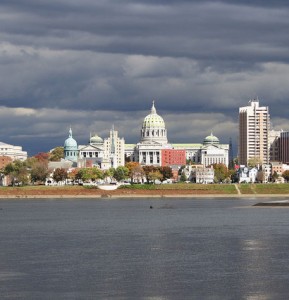Continued from previous page
After that, virtually everything is going to get a look, he said, starting with the cost of the legislature. “We’re all being asked to look at our expenses,” he said.

Even with one-party in control in Harrisburg, a $5 billion state budget deficit could mean stormy times in Harrisburg in 2011.
Noting that is only small likely savings, he said he thought it was important that people see elected officials are willing to share in living with less.
But, beyond the basics of protecting people, welfare and basic services, such as maintaining roads, every dollar the state currently spends has to be evaluated.
“We have to look at all of the programs,” Barrar said.
In addition to looking for savings in the welfare program, selling off the state liquor stores could be another option to close the budget gap. Although movements to privatize the state stores have failed, as union’s representing the state employees working at the stores worked with social conservatives who oppose wider availability of alcohol have banded together to stop the effort, Barrar said he thinks the current financial environment might be enough to allow it to prevail this time.
Supporters of privatization point to, in addition to the one-time windfall (which Barrar said he thinks should end up in a “lockbox” and used only to generate recurring income for the state) from selling the stores, long-term continuing revenue streams from annual licenses as well as increased sales taxes, taxes now lost on out-of-state sales. That might be enough to finally get the idea past much of its opposition this time, he said.
“We’ve never been in a financial stretch like this before,” Barrar said.
And still, even if both of those plans work out, the state still will need to find more spending cuts unless the economy heats up in a much more rapid fashion than recent months — and most financial forecasts — seem to indicate as likely.
That means program and spending programs — exactly the thing that has the potential to make for angry voters down the road.
He identified the $9 million the state gives to public broadcasters — such as WHYY — and education funding for prisons — Barrar noted that it seems unfair to cut funding for public schools without cutting those funds first — as a couple of possibilities to cosndier as the budget process starts.
[Editor’s Note] We’ll have more from the interview with Barrar later this week, including his plans as the new chairman of the Veterans’ Affairs and Emergency Preparedness committee and his non-budget related legislative priorities for 2011.






